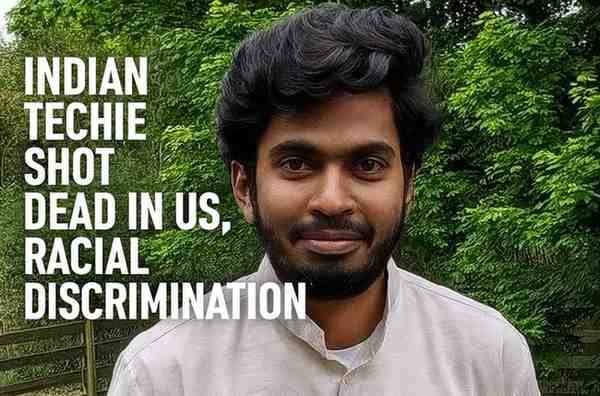Indian Techie’s Death Raises Alarming Questions
The tragic death of Mohammed Nizamuddin, a 30-year-old software engineer from Telangana, has shocked the Indian diaspora and reignited concerns over racial discrimination faced by immigrants in the United States. Nizamuddin was shot dead by California police in Santa Clara on September 3 after an altercation with his roommate turned violent. His family, however, has alleged that his life spiraled into chaos due to prolonged harassment, racial discrimination, and wrongful termination from his job.
Disturbing Allegations In Final LinkedIn Post
Days before the fatal incident, Nizamuddin took to LinkedIn to make a passionate plea against what he called the “American mentality” of racism and corporate exploitation. He described himself as a victim of racial hatred, harassment, wage fraud, and wrongful dismissal. In his post, he wrote, “Enough is enough, white supremacy/racist white American mentality has to end. Oppression of corporate tyrants must end and everyone involved in it must be punished severely.”
Nizamuddin specifically alleged that while working at Google through EPAM Systems, a US-based software engineering firm, he was unfairly compensated and later dismissed without justification. He further claimed that he faced hostility from colleagues and supervisors, accusing them of racial bias and discriminatory treatment.
Claims Of Wage Fraud And Poisoned Food
According to his LinkedIn statement, Nizamuddin said EPAM Systems had engaged in salary fraud by not paying him wages according to Department of Labor standards. After losing his job, he alleged that harassment continued, involving a “racist detective and team.” More alarmingly, he wrote that his food had been poisoned and that he was being forced out of his accommodation for fighting against injustice.
He described his employer, colleagues, and community members as the main aggressors, adding, “They are the trouble makers and oppressors behind the current chaos, not me. It is happening with me today, and it can happen with anyone tomorrow.”
Fatal Altercation And Police Response
On September 3, Santa Clara police responded to a distress call at Nizamuddin’s residence. According to officials, he was found pinning down his roommate, who had sustained multiple stab wounds. Police say Nizamuddin was armed with a knife, and in the ensuing confrontation, officers fatally shot him. The incident has been described by authorities as a case of self-defense during a violent episode. However, Nizamuddin’s family contests this version, alleging systemic racism and unfair treatment leading up to his death.
The Santa Clara Police Department confirmed that the investigation into the shooting remains “active and open.”
Family Seeks Justice And MEA Intervention
Back home in Mahabubnagar, Telangana, Nizamuddin’s family is struggling to come to terms with the tragedy. They described him as a quiet, religious man who had pursued a Master’s degree in Computer Science from a Florida university before joining a tech firm in California. His relatives insist that he had repeatedly raised concerns about harassment and wage fraud but received no justice.
The family has appealed to India’s Ministry of External Affairs (MEA) for assistance in repatriating his body, which is currently held at a hospital in Santa Clara for formalities. They have also demanded a comprehensive probe into the circumstances that led to his death, urging both Indian and US authorities to ensure accountability.
Corporate Silence On Allegations
EPAM Systems, which has a known partnership with Google Cloud, has not issued an immediate statement addressing the allegations made by Nizamuddin. The lack of response has further fueled anger among the Indian community, many of whom are calling for greater transparency in workplace practices and protections for immigrant employees.
Broader Concerns For Indian Diaspora
The tragic case highlights recurring issues of racial discrimination, unfair labor practices, and lack of institutional safeguards for foreign workers in the United States. Indian techies form a large part of the US workforce, particularly in Silicon Valley, but cases like Nizamuddin’s shed light on the challenges they face beyond professional competition — from cultural isolation to systemic racism.
Community leaders and advocacy groups have demanded that authorities address these concerns and ensure that immigrant workers are not subjected to exploitation or discrimination. The case of Mohammed Nizamuddin now stands as a stark reminder of the vulnerabilities many foreign workers endure in pursuit of better opportunities abroad.








